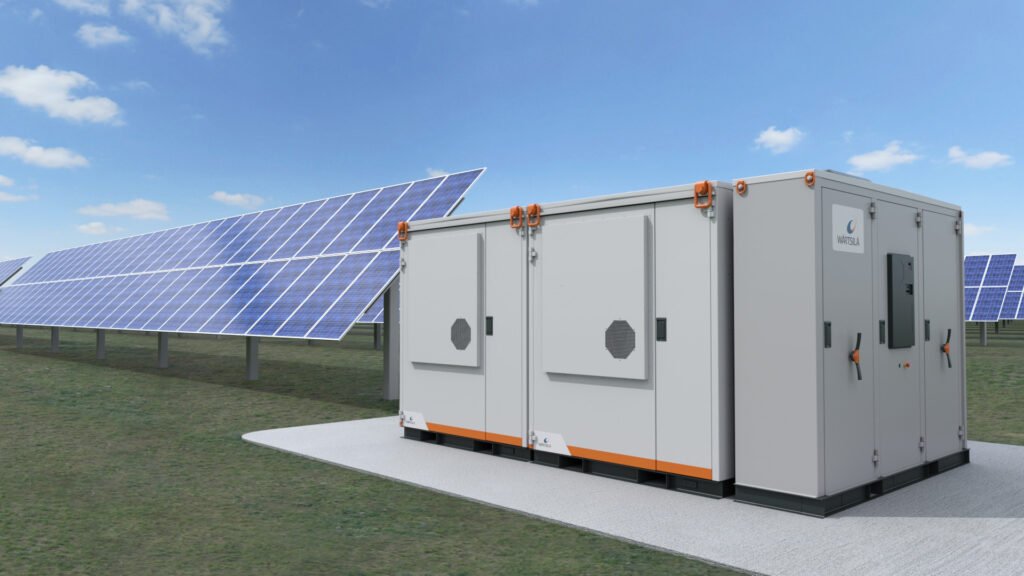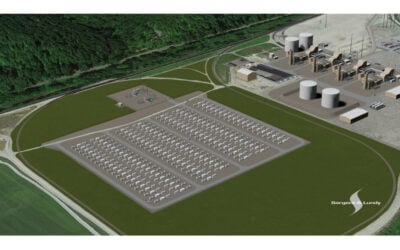
Georgia Power has filed its 2022 integrated resource plan (IRP), highlighting the decreasing economic viability of it coal and seeking to add resources including renewables, gas and battery storage.
The US utility — a subsidiary of integrated energy and communications utility group Southern Company — files its IRPs with the Georgia Public Service Commission (Georgia PSC) every three years, outlining its long-term generation and transmission infrastructure investment plans over an intended 20-year timeframe.
Enjoy 12 months of exclusive analysis
- Regular insight and analysis of the industry’s biggest developments
- In-depth interviews with the industry’s leading figures
- Annual digital subscription to the PV Tech Power journal
- Discounts on Solar Media’s portfolio of events, in-person and virtual
Georgia Power wants to retire 12 coal-fired generating units by 2028, totalling more than 3,500MW of capacity, leaving just two online which would then by retired by 2035. Coal power is continuing to become less economically viable, the company said, seeking approval from the Commission to begin retirements this year.
That capacity would largely be replaced by a mix of natural gas and renewable energy, including 2,356MW of natural gas power purchase agreements (PPA) to be signed over the next six years and the addition of 6,000MW of new renewables by 2035, roughly doubling its current capacity to about 11.5GW by that time.
An initial 2,300MW of that renewable capacity would be covered by proposals made in the current IRP, with further investments to come later. That includes renewable energy credit (REC) purchases.
In its previous IRP, filed in 2019, the utility had requested approval to build, own and operate 80MW of battery energy storage systems (BESS).
The first 65MW/260MWh project in that portfolio got its PSC approval last year and Georgia Power contracted technology provider Wärtsilä for engineering, procurement and construction (EPC) duties.
Also included in that IRP was a procurement for utility-scale renewable energy projects over 3MW in capacity, including standalone renewables as well as hybrid renewables-plus-storage plants.
The company issued a 1GW draft request for proposals (RfP) for those in November, with bidding expected to open during this quarter. At that time the company said it had about 2.5GW of renewables capacity and expected a further 2.5GW to come online by 2024.
This time around, Georgia Power requested the Commission’s approval to own and operate 1,000MW of energy storage by 2030, including the specific request for approval to own and operate McGray Ford Battery Facility, a 265MW BESS project.
The utility also wants to invest in maintaining and upgrading its hydroelectric resources and said that as part of its investment strategy into keeping the transmission and distribution of power reliable and resilient, it has identified long-duration energy storage, hydrogen, large-scale wind and distributed energy resources (DERs) as potential areas of interest.
Last October, Georgia Power said Vogtle 3 & 4, new generating units at a nuclear power station, are finally scheduled to go into service in the third quarter of this year and the second quarter of 2023 respectively.
Each of about 1,1117MW, the generating units — the first new nuclear generators in the US for over 30 years — will have been brought online at a cost to the utility of about US$9.2 billion, it said last year.
Also currently in construction is Hickory Park, a 200MW solar PV project with 40MW/80MWh of DC-coupled battery storage, for which Georgia Power has signed a 30-year power purchase agreement (PPA) with developer RWE Renewables.
Con Edison includes 200MW of solar and four battery projects in its IRP
In related news, New York-headquartered energy company Con Edison is seeking new electric and gas rates in 2023 to fund clean energy investments, in a proposal that includes a 200MW solar PV plant and four battery energy storage system (BESS) projects.
Made to the New York State Public Service Commission (PSC), the proposal plans to increase customers bills in order to raise an additional US$1.2 billion in funding for the investments, which also include transmission upgrades. It is also asking for US$500 million for its gas operations.
The New York-based utility is looking to develop a 200MW solar park that it can operate “for the life of the equipment at lower costs”, rather than under current models of fixed duration, variable-priced agreements, it said.
In a bid for greater reliability and flexibility, Con Edison is also pitching to add “four sets of batteries”, with an undisclosed total capacity, that it said would reduce pressure on the grid systems and facilitate the transition to clean energy.
The proposal also calls for upgrades to Con Edison’s overhead and transmission system throughout the five boroughs of New York City and Westchester County to ensure reliability and help integrate solar and wind power.
The higher rates would boost overall customer electric bills by 11.2% and gas bills by 18.2%, Con Edison said, adding that it would consider customer’s ability to pay and cost increases would vary by ‘customer class’.
Con Edison story by Sean Rai-Roche. It first appeared on our sister site PV Tech.






